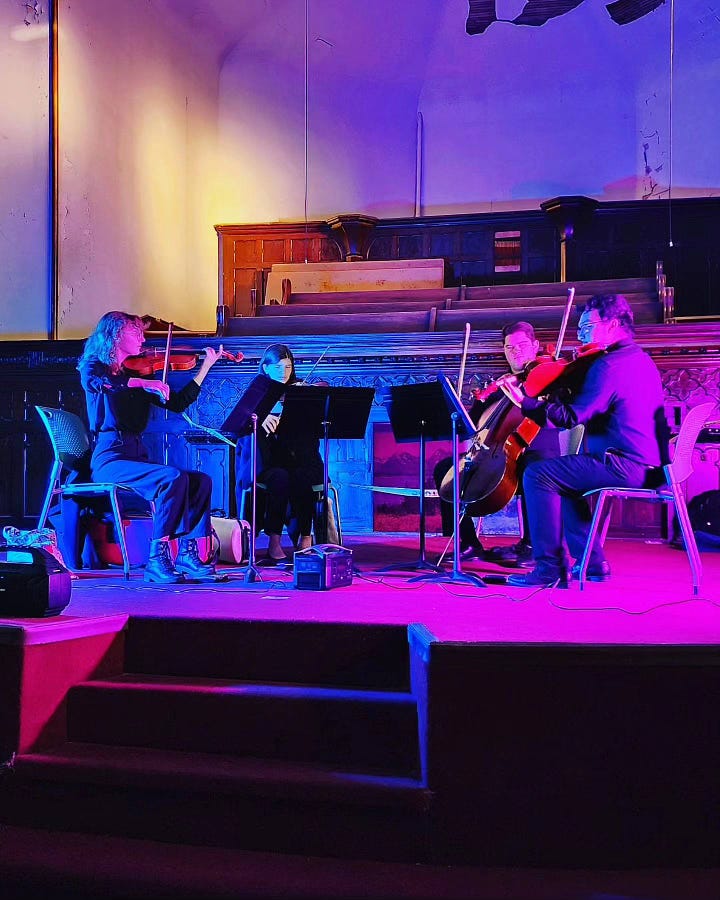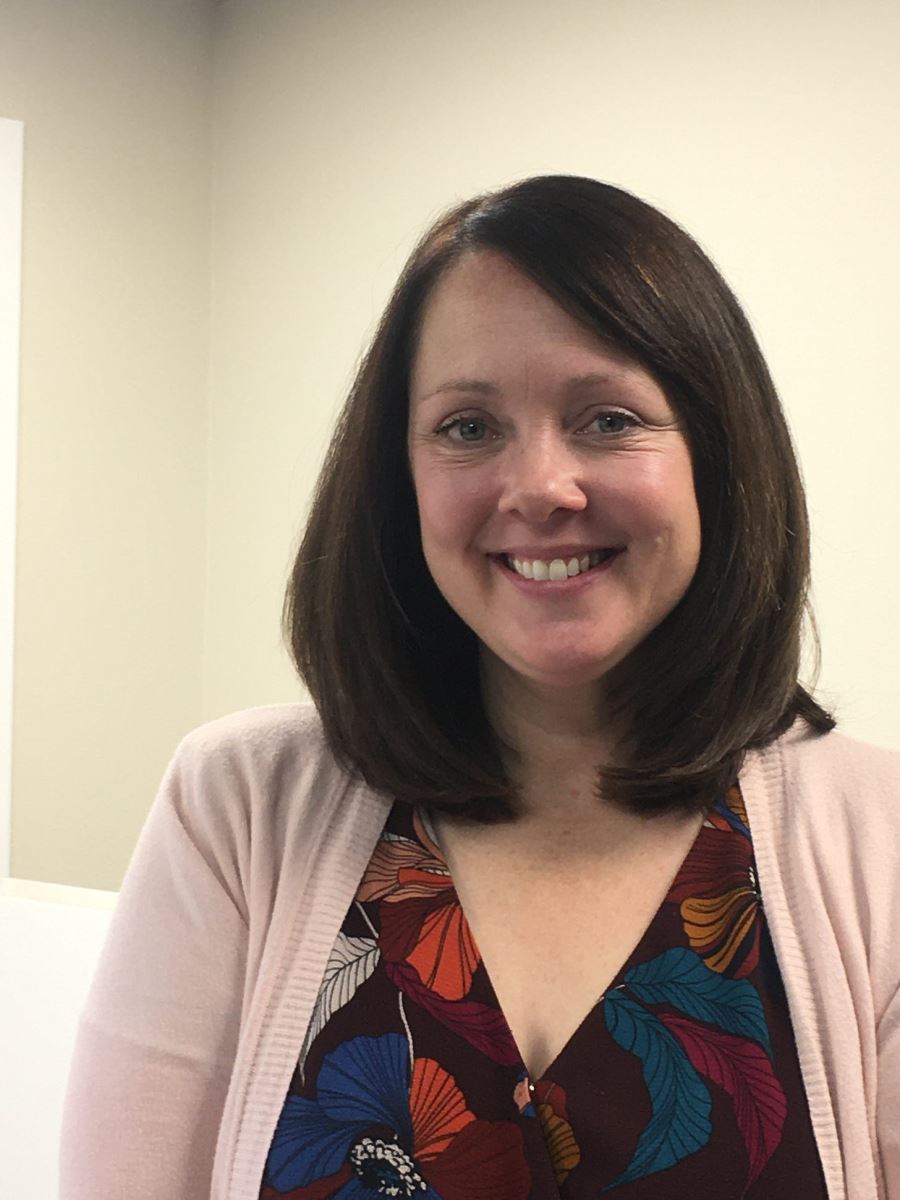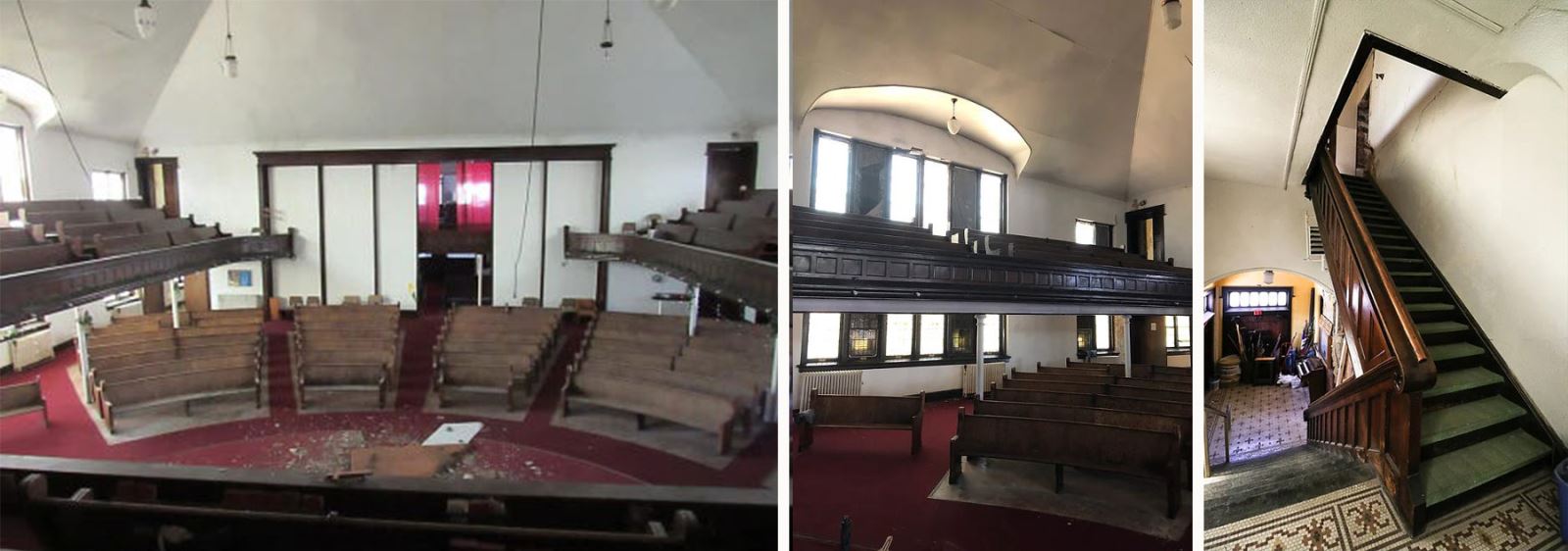Coalition finding new life for century-old Waterloo church building
Posted
by Pat Kinney
on Thursday, December 7, 2023
WATERLOO -- A coalition of organizations and individuals are teaming up for the salvation of a historic Waterloo church and the continued resurrection of the surrounding neighborhood.
Mathew Gilbert, an attorney, business consultant and the scion of one of Waterloo's trailblazing Black families, along with the Walnut Neighborhood Association and Iowa Heartland Habitat for Humanity, in communication with the Waterloo Historic Preservation Commission of which Gilbert is a member, are trying to repurpose and preserve the 115-year-old former Walnut Street Baptist Church, also known as Faith Temple Baptist Church for the last 30-plus years of its use as a worship site.
The groups and interested parties have formed an organization called the 415 Walnut Collective, drawing from the church's street address, in the interest of restoring and reviving both the building and the neighborhood, enhancing neighborhood redevelopment efforts already in progress.
One possible reuse of the building would be for an art and cultural performance center. The group’s efforts were bolstered this week by a $20,000 grant from the Otto Schoitz Foundation in Waterloo “to create architectural renderings of the proposed renovations and a roadmap for the revitalization plans for community use of this historic landmark in the Walnut neighborhood,” according to a foundation press release.
"This is a great project in the neighborhood I grew up in,” said Gilbert, a graduate of Simpson College in Indianola and Drake University law school in Des Moines, who has practiced in Des Moines and Waterloo.
Even though residence in the neighborhood was once race restricted, “I went to the Boys and Girls Club, graduated from East High School," both in the neighborhood. "I went to preschool in this neighborhood. I know this neighborhood. So I thought, 'Let me find a way get involved and give back a bit."
According to a building history on the collective's webpage, the church was constructed in 1908 by Waterloo architect Clinton P. Shockley, and it was individually listed on the National Register of Historic Places in 2000. The church is a central feature to the near-east side neighborhood, adjacent to downtown. It was nominated and recognized as the Walnut Street Historic District in 2019.
The church's original congregation built a new church, Walnut Ridge Baptist Church, on the west side of town and sold the Walnut Street worship site to Faith Temple Baptist Church, which used it from 1978 until 2010, when that congregation had to move due to continuing deterioration of the building.

Walnut Street Baptist Church, later Faith Temple Baptist Church, 415 Walnut St
In 2018, Iowa Heartland Habitat for Humanity, as a member of the Walnut Neighborhood Development Coalition, purchased the building with an eye on its renovation and reuse, assisted by the University of Northern Iowa and its Institute for Decision Making.
Other partners in the process include Link Christian Community Development and the UNI affiliate of Imagining America, a public art and scholarship initiative. Funds were secured through the State Historical Society of Iowa to secure the building exterior from further deterioration in 2020.
What began as a six-month consulting job for Gilbert (pictured below) included "16 weeks of real deep listening with the community," he said, "to literally give them an opportunity to listen and weigh in and give them an opportunity to learn about this project. ... From that we were able to draft a reuse plan. That reuse plan set in motion a larger vision for community vibrancy, arts and culture, and economic impact in a community and a neighborhood that has often been left behind.
"What I learned in this neighborhood was that there had been work that had been going on even before I got here," Gilbert said, with individual home restorations and other initiatives, including the years-long effort to establish the recently opened All-in Grocers in the neighborhood.
"I felt like I was being passed a torch to continue some of the meaningful economic development work that was going on." He became an organizer for the project.

"Now we have an amazing opportunity, amazing trajectory, ahead of us," Gilbert said. "Now I can use some of my professional skills to really help organize at the corporate level, the formal level, as well as protect this particular project -- so it has assets like historic tax credits, new market tax credits it can really tap into, as well as the potential, with the community's voice, to be a place for belonging, and innovation, and arts and culture creativity."
The collective has already demonstrated the facility's potential in that regard, for example, by recently hosting a performance by the Petrichord String Quartet of Cedar Falls.
in the church.

The Petrichord String Quartet of Cedar Falls recently performed at the former Walnut Street Baptist Church building in Waterloo (Courtesy photo)
"Not having that growing up was really a struggle," Gilbert said, "and I knew we needed a place where we could center that type of effort and energy."
Gilbert said the coalition is looking at "examples outside of Waterloo of community economic development, as well as buildings and innovation centers that actually help communities stay vibrant." Hoyt Sherman Place in Des Moines is one such example. Another is the CSPS performing arts hall in Cedar Rapids.
Iowa Heartland Habitat for Humanity "came in and actually acquired this property to make sure it was a community-owned asset," Gilbert said. "That, in and of itself, is the starting point of all of this actually happening. I've worked in so many projects" in other communities "where developers or building owners really didn't care too much about how people were treated along way. But having a building owner and a potential co-developer that's really interested in making sure that the community has a voice in the process; that the community has this capacity to own this particular facility, as well as exploring a vision to bring us all together," is a great starting point.
"What I've also had to do is help coach and help support and strengthen that (potential) ownership group," Gilbert said. Habitat purchased the building with the intention of eventually passing ownership on to “an organization(s) committed to utilizing the building for collaborative and equitable community enrichment," according to information on the collective webpage.
Ali Parrish (pictured below), executive director of Iowa Heartland Habitat for Humanity, said, "One of the things I learned a lot from Matthew and through the 415 Walnut Collective is this collective, collaboration idea. It's not about individual programs, organizations or people. But are we having communication? Are we working together? Are we willing to shift and adjust to make it better for the greater good of all? The dialog and the learning from one another was important, and that's continued. This collective has so much power beyond the building itself ... if we're all talking together and learning from one another."

A founding board of individuals are "committed to leading a coalition and collective nonprofits, churches, businesses and community folks into seeing through this vision for this building, the church project, and really for one another," Gilbert said.
"There's some amazing things going on in the neighborhood," Gilbert said, noting that Habitat "has been making some really great home rehabilitation, as well as providing an on-ramp for home ownership for a lot of single parent families. Not only protecting and restoring some of these beautiful homes, but also providing a home ownership gateway, has been a real strength to the efforts."
The opening of All-in Grocers, "as another hub for community involvement and community gathering, especially around healthy food, is just an amazing contribution," Gilbert said.
"What's really important is the neighborhood itself," Gilbert said. It has a neighborhood association and related neighborhood safety and other groups. "They're all engaged. In such a diverse neighborhood, where you have not only diversity of race, but of mobility, of age. We were able to pull a coalition of multi-generational Waterloo folks together, to do something that not only hasn't been done here in Waterloo, but to be honest with you, the wind is trying to tell us we can't do it. But we've been able to forge strength in one another, continuing to move at a genuine pace, but a pace that's comfortable for the community, versus a developer's pace that is just market driven. We've really got into community impact and community engagement that's really help us do a meaningful exchange.”
"Waterloo is home for me," said Gilbert, founder and CEO of MRG and Associates LLP. "Coming back home and making a contribution is something I always planned to do, Why this project? The framework, for not just the building itself, but for the people is really important. The ecosystem that we've started to build has really been one that has really helped me find (a sense of) belonging in Waterloo."

Different views of the interior of the former Watnut Street Baptist Church building in Waterloo (Courtesy photos)
Gilbert is the great grandson of Dr. Lee Furgerson, the first Black physician in town, and Lily Ferguson, a pathfinding Waterloo educator for whom the Lily Furgerson Child Development Center was named.
He's also the grandson of Dr. Warren and Martha Nash. Nash, a native of Flint, Mich. with a medical degree from Creighton University, was a successor to Dr. Furgerson. Martha Nash, a daughter of the Furgersons who met her husband at Talladega College, a historically Black institution in Alabama, was active in a number of social justice issues through the Black and Catholic communities in Waterloo.
Gilbert's great aunt, Betty Jean "B.J." Furgerson, was the longtime director of the Waterloo Human Rights Commission, served on the Waterloo school board, the Iowa Board of Regents and the board of what is now Iowa Public Television. His great uncle, Waterloo East High School alum Dr. Percy Harris, was the first Black doctor in Cedar Rapids and the longtime Linn County medical examiner.
Also, Gilbert said, Also, "I'm doing this for our youth. Because they need to see examples of Black men, of Black families, of multicultural groups working together to do something for their neighborhoods, for their community.
"It's great to get a building restored, but it's more important to say, 'Is this building going to be available for my great grandchild to be a part of?' Now we're starting to build healthy institutions, which is where I began in this work."